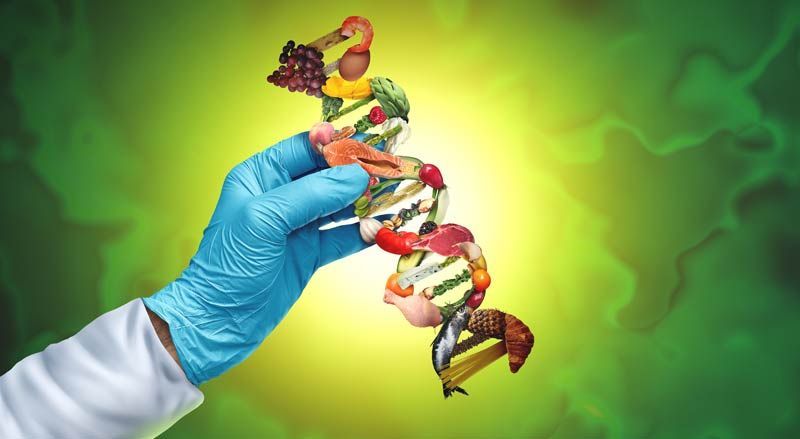Food as Medicine: Reclaiming Our Health Through Holistic Nutrition and Mindful Eating
As we learn to approach nutrition as one of the foundational pillars of both mental and physical health, we open the door to one of the most powerful and accessible healing modalities we have access to in modern life.
-Dr. Alicia Armitstead
In my practice, I’ve seen countless patients suffering from digestive issues, nutrient deficiencies, and chronic inflammation due to poor dietary choices. But food as medicine is not just about physical health; it also plays a significant role in mental health and well-being. Modern science is beginning to back up what traditional medicine has long known—what we put in our bodies affects not just our physical health but also our mental state.
The connection between nutrition, mental health, and the body is complex and bidirectional. Nutrients and foods play a critical role in the production of neurotransmitters and the regulation of our mood, energy levels, and cognitive function. By viewing food as information that programs our biological systems, we start to see how every meal is an opportunity to support not just our physical health but our mental state as well.
The connection between food and mood is deep, and scientific research has been pointing to the gut as the ‘second brain’ for years. Around 95% of serotonin, our mood regulator, is produced in our digestive system. As a result, the quality of our diet has a significant impact on our mental health. I regularly see patients with suboptimal diets presenting with anxiety, depression, brain fog, and mood swings. Nutrient-dense foods that are high in omega-3 fatty acids, antioxidants, and probiotics have been shown to have anti-inflammatory effects in the brain and promote positive mood regulation.
On the other hand, diets high in refined sugar, artificial ingredients, and processed foods have been linked to an increased risk of depression and anxiety disorders. Many of my patients have reported significant improvements in their energy levels, mood, and mental clarity simply by removing inflammatory foods from their diet and focusing on whole, nutrient-rich foods. In some cases, this dietary shift has even reduced or eliminated the need for pharmaceutical antidepressants and anti-anxiety medications.
Food as information becomes even more apparent when we look at the concept of inflammation in the body. When we eat, the nutrients and compounds in the food we consume send signals to our cells, tissues, and organs. Depending on the quality of our diet, these signals can either promote inflammation or support healing and repair. An anti-inflammatory nutrition protocol is based on whole, unprocessed foods that provide the body with the right balance of macronutrients—protein, healthy fats, and complex carbohydrates—as well as a wide array of micronutrients, including vitamins, minerals, and phytonutrients.
These nutrients work together to support the immune system, promote tissue repair, and provide energy for cellular function. For many chronic conditions, such as arthritis, fibromyalgia, or autoimmune diseases, targeted nutritional strategies can significantly reduce symptoms. For example, removing nightshade vegetables can often bring relief for arthritis patients, while an autoimmune protocol diet has been a game-changer for many of my patients in reducing flare-ups and regaining function. Hydration is often a neglected but essential aspect of any nutrition plan. Water is crucial for every biochemical reaction in our bodies and helps transport nutrients to cells, flush out toxins, and maintain healthy organ function.
The mind and body connection is so profound that our thoughts and emotions can create physical responses in our bodies. Stress, for example, can lead to digestive problems such as IBS, acid reflux, or ulcers. On the flip side, digestive distress often causes or exacerbates anxiety and depression. This is why holistic nutrition is all about breaking this negative feedback loop. Adaptogenic herbs like ashwagandha, rhodiola, and holy basil can help regulate the stress response while providing additional nutritional support.
Mindful eating practices before meals can stimulate the parasympathetic nervous system (the ‘rest and digest’ response) and improve nutrient uptake while minimizing digestive discomfort. In my practice, I frequently prescribe foods and supplements based not only on the physical symptoms but also on emotional states. I might recommend magnesium-rich foods for an anxious patient or tyrosine-containing foods for someone experiencing depression. Holistic nutrition recognizes that we are not just healing our bodies; we are also nurturing our minds.
The body is an incredibly powerful self-healing machine, and food can provide the key that unlocks this power. I’ve witnessed patients recover from so-called ‘chronic’ and ‘incurable’ conditions by simply shifting their nutritional approach. Conditions like inflammatory bowel disease, IBS, or colitis can respond dramatically to an elimination diet that identifies trigger foods, followed by gut-healing protocols rich in bone broth, collagen, and specific probiotic strains. Hormonal imbalances often improve or resolve when patients eat more cruciferous vegetables, quality fats, and fiber while cutting out hormone-disrupting xenoestrogens from processed foods.
Autoimmune conditions often respond well to an elimination diet, and then specific protocols, like the AIP diet or the keto diet. Even neurological conditions like ADHD and autism spectrum disorder have shown improvements in some cases with an anti-inflammatory diet rich in omega-3s and antioxidants. The timeline for recovery and healing varies from person to person, and some conditions will improve within a matter of days or weeks, while others may take months of consistent nutritional therapy before improvement is seen. What is certain is that the body is always trying to heal. When we cut out the sources of inflammation and nutrient deficiencies, the body is capable of amazing regeneration and healing. It’s a slow process, and it doesn’t happen with one magic superfood or quick fix, but instead a gradual realignment with our body’s natural requirements for optimal function.
In the practice of holistic nutrition, how you eat is almost as important as what you eat. Bringing mindfulness to the eating experience changes the meal from something we need to get through to a time for pleasure and restoration. This begins before the food is even on your plate, as you source, select, and prepare your ingredients with intention. The practice of mindful eating during meals involves slowing down, appreciating the texture and flavor of the food, chewing thoroughly, and expressing gratitude for the nourishment. These actions signal to the body to optimize digestion by releasing digestive enzymes and by giving your brain time to register satiety signals properly.
Compare this to a typical rushed meal eaten on the go, multitasking with a smartphone or a laptop, which activates the stress response and actually impairs digestion. I guide my patients to practice mindful eating in simple ways. For example, setting devices aside for the duration of a meal, taking three deep breaths before eating, chewing each mouthful of food at least 20 times, and stopping halfway through a meal to assess hunger. People who make a habit of these practices report better digestion, satisfaction with smaller portions, reduced cravings, and an overall healthier relationship with food. When we eat mindfully, we reconnect with our bodies’ innate nutritional wisdom, that inner voice that knows exactly what we need if we can tune out the noise of marketing messages and social media filters.
Holistic nutrition is as much about our relationship with food as it is about the individual meals we eat. It encourages us to be conscious of the origin of our food, how it was grown or raised, the environmental impact of our food choices, and the energy with which we prepare and consume our meals. This broadened awareness allows us to nourish ourselves in a more sustainable and ethical way. Eating seasonally, when food is at its nutritional peak and supports local ecosystems, is a powerful tool for getting the most out of our meals. Food energetics, or the warming, cooling, or neutral properties of certain foods, is another fascinating area of traditional nutrition that can help us select foods to support individual constitutions and balance specific imbalances.
The community aspect of eating, sharing food, and sitting down together to break bread, also satisfies our social needs and can take some of the stress and anxiety out of mealtimes. I encourage patients to develop their own unique food philosophy, which meets their individual needs, nutritional requirements, and cultural and ethical values. This may mean predominantly plant-based eating with occasional ethically sourced animal products, or it may mean following ancestral patterns that connect them to their cultural roots. The important thing is to build a conscious, intentional, and healthy relationship with food that takes into account all the ways it nourishes us, including the physical, emotional, ethical, and cultural.
Food is much more than just fuel for the body; it’s also information that programs our biological systems, communicates with our brain and mind, and can either lead to disease or support healing. At Healing Arts NYC, I am privileged to see patients every day who are transforming their health by approaching nutrition from this perspective. If you’re ready to take the first steps toward optimal health through holistic nutrition, know that it’s not about being a perfectionist or following a restrictive diet. It’s about building awareness, making informed choices, and seeing the link between what we eat and how we feel, think, and function.
As we learn to approach nutrition as one of the foundational pillars of both mental and physical health, we open the door to one of the most powerful and accessible healing modalities we have access to in modern life. Whether you’re looking to address a specific health concern or just want to experience greater vitality, your next meal is an opportunity to talk to your body and mind. In a world with so many complex health issues, this ancient wisdom of food as medicine is a path that is simple and available to all of us, and yet so transformational.












